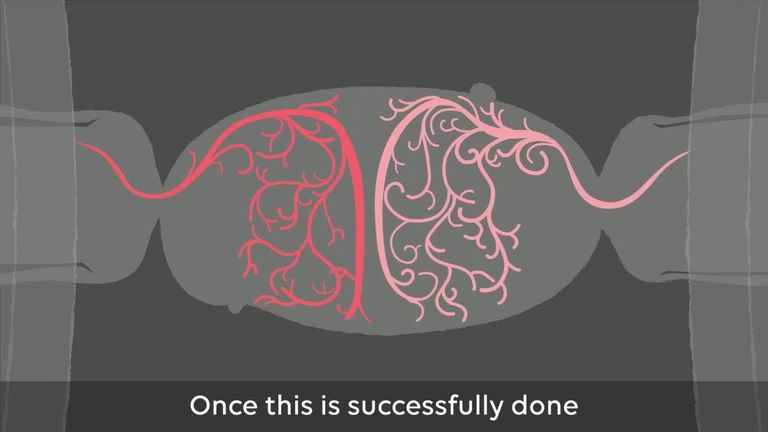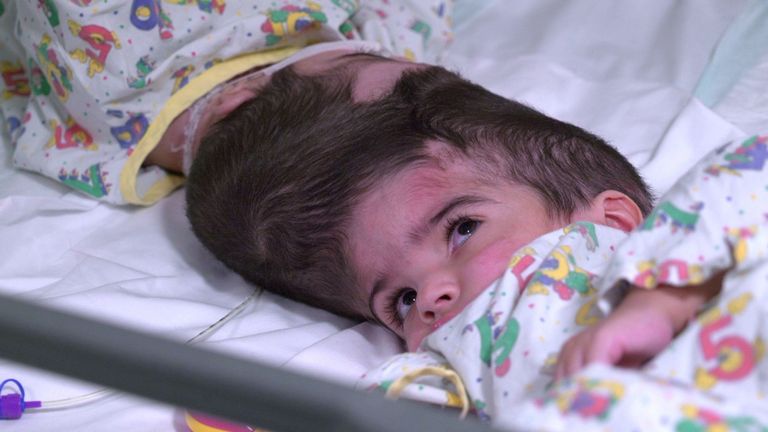The girls were craniopagus twins, with their skulls and blood vessels fused together.
Two-year-old twins who were joined by their skulls and blood vessels have been successfully separated after having three major operations at a London hospital.
The surgery on Safa and Marwa Ullah, from Charsadda in Pakistan, took place at Great Ormond Street in what has been described as a “long and complex journey”.
There were also several smaller procedures and experts carried out a total of more than 50 hours of operations involving 100 staff.
The conjoined twins, whose father has died, were discharged on 1 July and moved to a London address with their mother, grandfather Mohammad Sadat, 57, and an uncle.

They are now having daily physiotherapy as part of their rehabilitation.
Their mother, Zainab Bibi, 34, said: “We are indebted to the hospital and to the staff and we would like to thank them for everything they have done. We are extremely excited about the future.”
Conjoined twins are very rare – affecting about one in every 2.5 million births.

The girls, who were born by Caesarean section, were craniopagus twins, with their skulls and blood vessels fused together.
The surgery began last October when the girls were 19 months old, and they were finally separated this February.
Experts used virtual reality to create an exact replica of the girls’ anatomy to visualise the complex structure of their skulls as well as how their brains and blood vessels were positioned.

The team used 3D printing to create plastic models of the structures that could be used for practice and cutting guides were created so surgeons could work more precisely.
During the surgery, doctors first worked to separate the girls’ blood vessels and then inserted a piece of plastic into their heads to keep the brains and blood vessels apart.
The final major operation involved building new skulls using the girls’ own bone.
They also used tissue expanders to ensure the girls’ own skin would stretch over the top of each of their heads.
Neurosurgeon Noor ul Owase Jeelani and craniofacial surgeon Professor David Dunaway, who led the team, said: “It has been a long and complex journey for them, and for the clinical team looking after them.
“From our personal point of view, it has been great to get to know the girls and their family.

“Their faith and determination have been so important in getting them through the challenges they have faced. We are incredibly proud of them.
“We are also incredibly proud of the [hospital] team responsible for their treatment and care over the past 10 months.”
Great Ormond Street Hospital has previously successfully separated craniopagus twins in 2006 and 2011.

